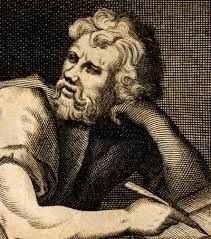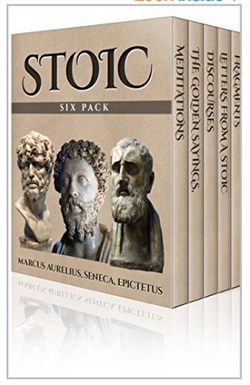Epictetus (55–135 C.E.)
Internet Encyclopedia of Philosophy IEP
Epictetus (pronounced Epic-TEE-tus) was an exponent of Stoicism who flourished in the early second century C.E. about four hundred years after the Stoic school of Zeno of Citium was established in Athens. He lived and worked, first as a student in Rome, and then as a teacher with his own school in Nicopolis in Greece. Our knowledge of his philosophy and his method as a teacher comes to us via two works composed by his student Arrian, the Discourses and the Handbook. Although Epictetus based his teaching on the works of the early Stoics (none of which survives) which dealt with the three branches of Stoic thought, logic, physics and ethics, the Discourses and the Handbook concentrate almost exclusively on ethics.
The role of the Stoic teacher was to encourage his students to live the philosophic life, whose end was eudaimonia (‘happiness’ or ‘flourishing’), to be secured by living the life of reason, which – for Stoics – meant living virtuously and living ‘according to nature’. The eudaimonia (‘happiness’) of those who attain this ideal consists of ataraxia (imperturbability), apatheia (freedom from passion), eupatheiai (‘good feelings’), and an awareness of, and capacity to attain, what counts as living as a rational being should. The key to transforming oneself into the Stoic sophos (wise person) is to learn what is ‘in one’s power’, and this is ‘the correct use of impressions’ (phantasiai), which in outline involves not judging as good or bad anything that appears to one. For the only thing that is good is acting virtuously (that is, motivated by virtue), and the only thing that is bad is the opposite, acting viciously (that is, motivated by vice). Someone who seeks to make progress as a Stoic (a prokoptôn) understands that their power of rationality is a fragment of God whose material body – a sort of rarefied fiery air – blends with the whole of creation, intelligently forming and directing undifferentiated matter to make the world as we experience it. The task of the prokoptôn, therefore, is to ‘live according to nature’, which means (a) pursuing a course through life intelligently responding to one’s own needs and duties as a sociable human being, but also (b) wholly accepting one’s fate and the fate of the world as coming directly from the divine intelligence which makes the world the best that is possible.
|



![]()

